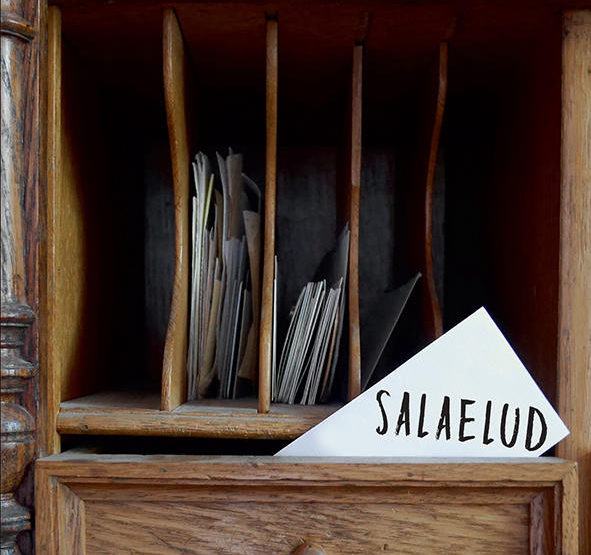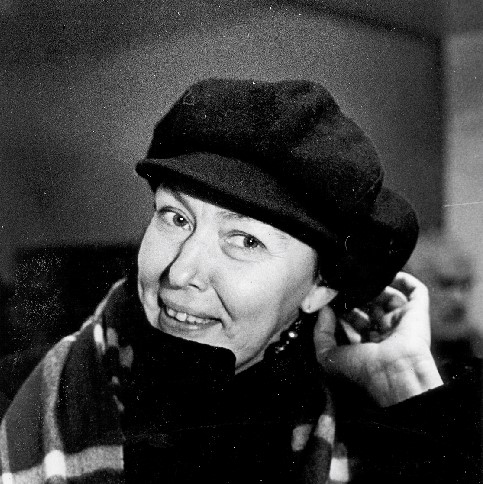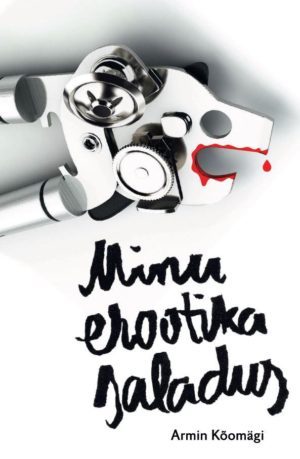Maimu Berg. Hitler Mustjalas (Hitler in Mustjala)
Short Stories
Tuum, 2016. 221 pp
Hitler sells; it’s true. He’s become one of modern society’s most grotesque celebrities, and the grand old lady of Estonian literature, Maimu Berg, pokes fun at this grotesqueness in turn. In truth, only one of the book’s stories involves Hitler – the first. Stalin and Beria take the stage in a few others, Putin is discussed, and none other than Bundeskanzler Merkel ends up finding a relative in a backwater Estonian village. Later, the author also tackles other topics.
Scanning the cast of characters that populates the first section of the book, it’s clear that these stories are not overly serious. At the same time, such an approach can be deceiving: Berg always has a trick up her sleeve. For instance, a question left hanging at the end of “Hitler in Mustjala[1]” is whether the author has penned an alternative history, or if she has merely described her childhood summers together with the local legends and stories she picked up. Specifically, there exists a myth that, after fleeing Berlin, Hitler spent his final years as a village kook on Saaremaa.
“Stalin in Tallinn” similarly concocts a tale about how Stalin and his cronies decide on a whim to travel incognito to the capital of the Estonian SSR, but it turns out that the story is an odd explanation for how and under what circumstances the author’s aunt had the “opportunity” to see distant places in the Soviet homeland, i.e. by spending close to six years in the Gulag system. Now, the reader naturally might ask: does Maimu Berg even have an aunt, and if she does, then is the story truly about her relative, or is it merely literary fiction?
Berg’s stories should always be read attentively, in any case, for she invariably addresses several topics at once, and that is a good quality in a writer, especially with short texts, in which Berg is capable of cultivating entire worlds using very few words.
The first few of the seven short stories do revolve around contemporary and historical figures, but the second part of the book is somewhat more personal and tranquil – this not in terms of content (“Ya liubliu vas, ya liubliu vas, Olga”[2] is a truly dramatic story about an unhappy romance that ends in catastrophe), but of Berg’s style of storytelling. The narrator is often the protagonist, and one can frequently sense that the events being described happened to the author personally: anyone familiar with contemporary Estonian literary history will recognize several instances. Even so, this doesn’t detract from the reading enjoyment or the stories’ literary worth. Berg simply is an author capable of being playful and fantastical when she wishes, and at the same time of staying true to herself while taking inspiration from personal experiences. Both sides of the author are equally enjoyable, and provide the reader with opportunities to identify with and become immersed in the stories.
[1] A village on the island of Saaremaa.
[2] “I Love You, I Love You, Olga” (Russian)
Peeter Helme (1978) is an Estonian writer and journalist, and anchors Estonian Public Broadcasting’s literary radio programs. Helme has published five novels. The latest, Deep in the West (Sügaval läänes, 2015), is a drama set in the industrial Ruhr Valley.





